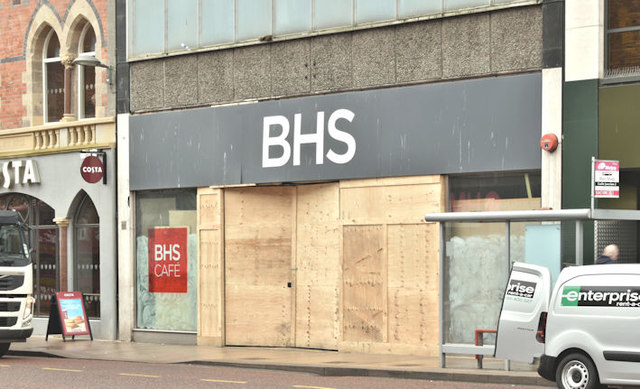Why are corporate vultures free to take most of the pickings from bankrupt businesses?

Against the background of austerity and Brexit uncertainties, corporate bankruptcies are increasing. According to government statistics, for the second quarter of 2019 corporate insolvencies rose by 11.9% compared to the same period the previous year.
Companies of all shapes and sizes have gone under, from London Capital & Finance and Bernard Matthews brands like Maplin and BHS.
Bankruptcies are the norm in market based economies and enable capitalism to renew itself, but the cost of restructuring capitalism is not shared evenly or equitably. Typically, banks and financial institutions providing loans secure charges over corporate assets. In the event of bankruptcy, the Enterprise Act 2002 requires that secured creditors must be paid first. In most bankruptcies, the proceeds of the residual assets are barely sufficient to repay secured creditors. That means unsecured creditors receive next to nothing.
The inequity of the legal arrangements means that unsecured creditors including employees, pension schemes, consumers, taxpayers, supply chain creditors and local communities bear the brunt of the losses.
Pension schemes with deficits operated by bankrupt companies can be bailed out by the Pension Protection Fund, but the rescue is restricted to 90%. Therefore, pension scheme members suffer some loss to their rights. Many are unable to rebuild their pension pots and therefore face insecurity for the rest of their life.
In 2017, unsecured creditors had to absorb losses of £4.2bn. In the first half of 2018, another £2.7bn was written-off. This hits the viability of the supply chain and small and medium-sized businesses who in turn have to lay-off staff and curtail their operations. A more equitable way of sharing the risks from bankruptcy is needed – but no government has shown the backbone to challenge the privileges of finance capital.
For instance, government could ensure that pension schemes with deficits become preferential creditors. The law could be changed to ensure that a substantial part – say 30%-40% – of the proceeds from the sale of the assets of a bankrupt business are ring-fenced for the benefit of unsecured creditors. This would ensure that all unsecured creditors would get something and that could make a significant difference to their survival.
Major reform of corporate insolvency is long overdue. The Labour Party’s 2017 election manifesto indicated a partial reform to safeguard the public purse, especially as taxpayers have to meet the consequences of corporate bankruptcies. The background is that prior to 2002, HMRC was a preferential creditor (often known as the Crown Preference) for insolvent businesses and individuals. The insolvency regime introduced by the 2002 Enterprise Act sought to appease the finance lobby and transformed HMRC into an unsecured creditor. This increased the amounts that banks and financial institutions could collect from bankrupt businesses but hit the public purse.
The legal change made it easy for directors and major shareholders to avoid tax debt. For example, my report to the House of Commons Work and Pensions Committee on Swiss Rock Limited (a vehicle owned by Dominic Chappell of BHS fame) noted that its directors extracted as much cash as possible and avoided paying £733,000 of VAT and corporation tax to HMRC after placing the company in liquidation.
In the insolvency of Bernard Matthews Limited, private equity directors sold assets of the company to repay debts due to banks and themselves, but dumped a £1.38 million tax liability to HMRC. This enabled shareholders to extract higher returns. The annual write-offs by HMRC are in the range of £4bn-£5bn. Any recovery could make a significant improvement to public services. So Labour has promised to restore the preferential creditor status of HMRC.
The Conservative manifesto did not contain any promise to reform the insolvency processes, but that did not prevent the government from stealing and revarnishing Labour’s ideas. The recently published Finance Bill 2020 proposes to partially restore the Crown Preference by making HMRC a secondary preferential creditor for taxes paid by customers (e.g. VAT) and employees (e.g. PAYE and National Insurance). For these debts, HMRC will rank as a preferred creditor, but behind the secured creditors such as banks and private equity. This assumes that sufficient amounts would be left after secured creditors have been paid. HMRC will remain an unsecured creditor for taxes that the bankrupt business owes e.g. corporation tax, capital gains tax, Employer National Insurance Contributions and other taxes.
The government’s partial reform of HMRC creditor status is gesture politics. It does not safeguard the public purse. It does not challenge the entrenched privileges of banks and other financial institutions.
The tinkering of HMRC creditor status may recover small additional amounts, but does not curb the dumping of tax liabilities. Why are vultures free to take most of the pickings from bankrupt businesses?
See also: How UK regulators have covered up corruption and fraud
Prem Sikka is a Professor of Accounting at University of Sheffield, and Emeritus Professor of Accounting at University of Essex. He is a Contributing Editor for Left Foot Forward and tweets here.
To reach hundreds of thousands of new readers and to make the biggest impact we can in the next general election, we need to grow our donor base substantially.
That's why in 2024, we are seeking to generate 150 additional regular donors to support Left Foot Forward's work.
We still need another 124 people to donate to hit the target. You can help. Donate today.




2 Responses to “Tory insolvency reforms are gesture politics. They won’t curb tax abuse”
Dave Roberts
“Why are corporate vultures free to take most of the pickings from bankrupt businesses”? Why are you asking us? You’re supposed to be the expert!
Prem Sikka: How companies use debt to line their pockets | Left Foot Forward
[…] insolvency laws need to be reformed to ensure that secured creditors can’t walk away with almost all of the […]